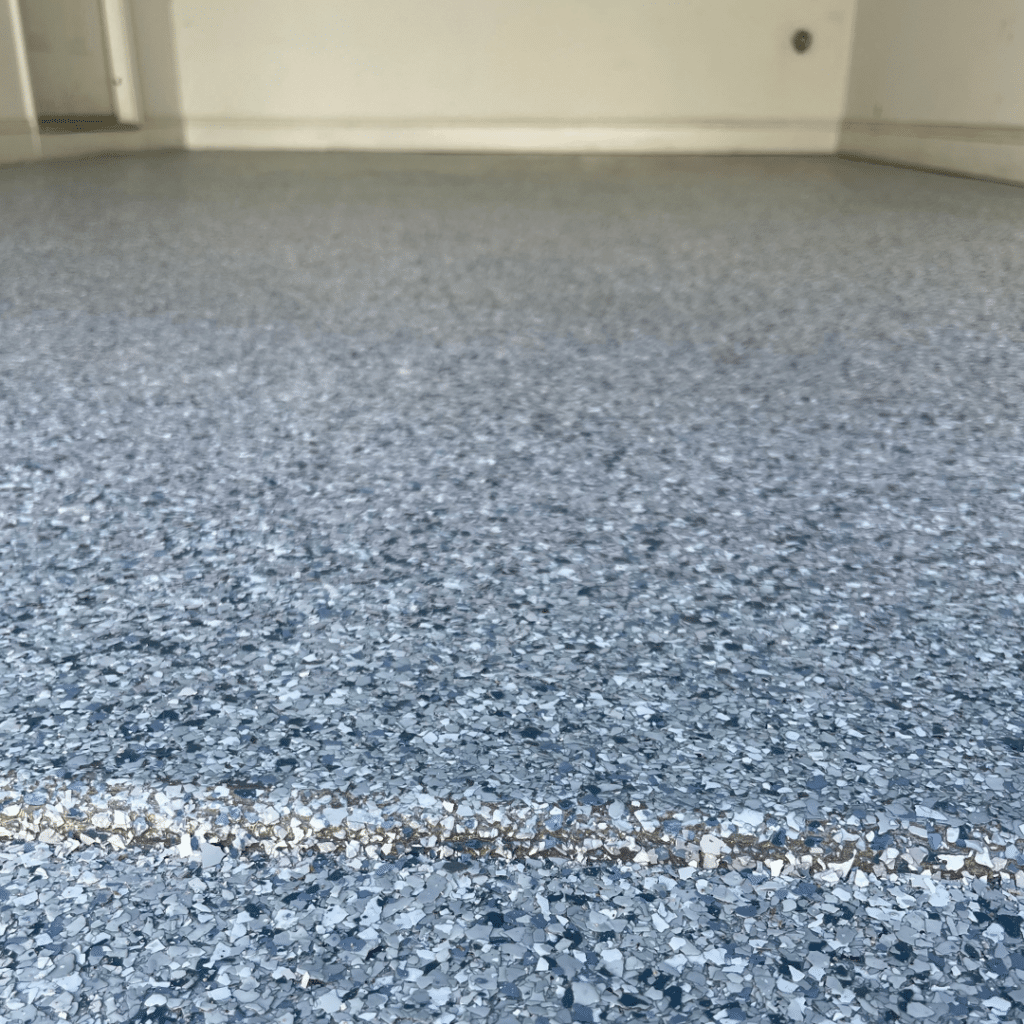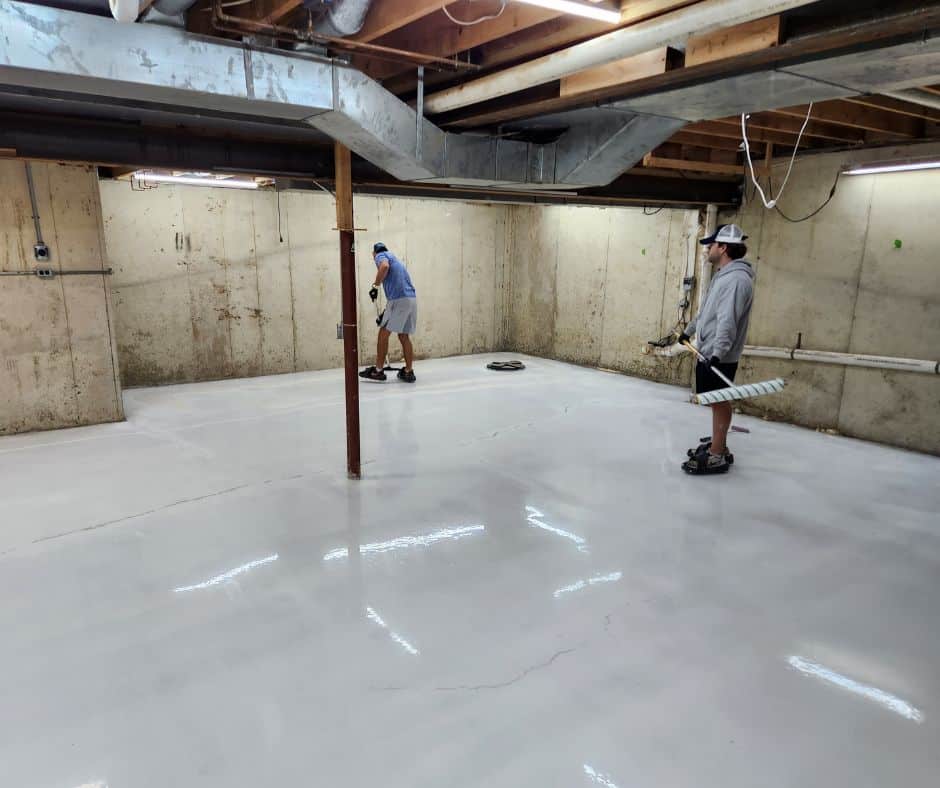
Is “Flooring in 1 Day” Too Good to Be True?
Having the option to have your floor coating complete in “just 1 day” sounds great in theory, but is it too good to be true?
When companies advertise that they can complete a floor coating within 1 day, they are typically using a polyurea 1-day coating. While it’s convenient to have the job done quickly, the results are different than if you were to go with epoxy.
Polyurea Coating vs Epoxy
Durability
One significant advantage of epoxy is its concrete adhesion. Epoxy forms a strong bond with the concrete substrate, often creating a bond that is stronger than the concrete itself. This robust adhesion contributes to the durability and longevity of the coating, ensuring it can withstand everyday wear and tear.
Polyurea is very durable and is actually more UV-resistant than epoxy. However, at Swayd, we apply a polyaspartic top coat over epoxy that provides UV protection and enhanced durability.
Versatility and Aesthetics

Polyurea and epoxy coatings have similar customization options. They both provide a smooth, glossy finish that enhances the overall appearance of the concrete surface. They can be customized for various decorative finishes, offering a wide range of design possibilities.
Because epoxy takes more time to cure, it allows for more working time to customize the look of your flooring. If you are looking for a more custom finish with unique designs, then epoxy is probably the better choice.
Application Time
While polyurea is known for its fast cure time, epoxy coatings offer a longer working time during application. This extended working time can be advantageous, especially in larger projects where meticulous application is required. The downside of a polyurea coating drying so quickly is that it often results in mistakes.
Cost
Cost is another strong suit of epoxy coatings. Epoxy coatings are generally more budget-friendly than polyurea, making them an attractive option for projects with financial constraints.
Deciding Between Polyurea and Epoxy
It’s essential to note that the choice between epoxy and polyurea depends on the specific requirements of the project. Factors such as cure time, chemical resistance, UV stability, and application conditions should be carefully considered to determine the most suitable coating for a given situation. While epoxy may be preferable in certain circumstances, polyurea has its own set of advantages that may make it a better choice in other scenarios, specifically when limiting commercial/business downtime during installation is important.
So while “flooring in 1 day” isn’t necessarily a bad thing, it’s best to consider what makes the most sense for your desired look and budget.